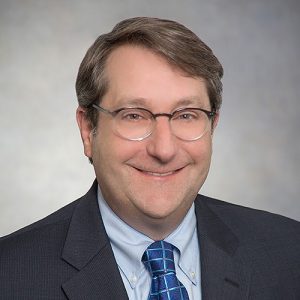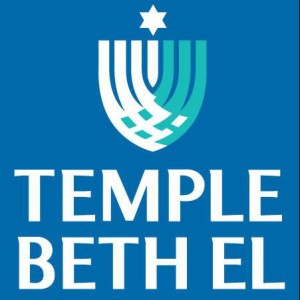Although my Jewish identity has always been strong, I never thought of myself as an observant, learned or spiritual Jew. Like most I wondered – still do, at times – about the existence and nature of God. Sometimes I found services formulaic or the sermons stilted and wondered why I was going to another Shabbat (for the challah, of course), Rosh Hashanah (for the apples and honey, of course) Yom Kippur (for the break the fast lox and bagels, of course), Sukkot (for the fresh grilled vegetables and hummus, of course), Hanukkah (for latkes and applesauce, of course), Purim (for the hamantaschen, of course), or Seder (for gefilte fish and matzah ball soup, of course). Noticing a theme?
I have always wrestled with the meaning of spirituality. So trying to define where I find spiritual connection forced me to really ask: What does spirituality mean to me and where do I find it? When did/do I find a deeper connection to my Jewishness?
I found it on my 39th birthday which was also Yom Kippur. Rabbi Schindler’ sermon that day was entitled “Ethical Wills” and she spoke about the true legacy we leave behind. It renewed in me the challenge to think about my Jewish values and made me reflect on how my Judaism was showing up in my daily life. It forced me to take stock and ensure I was living a life that had greater meaning. What legacy was I creating every day? I realized then that the material possessions I would leave behind were not as important as the lessons my children learned from my actions.
I found it again last year when Rabbi Knight challenged us to engage with our Judaism in new ways. I embraced the idea and now attend Temple Beth El’s Torah study every Shabbat that I am in Charlotte. It has been a wonderful experience to learn with others as we discuss the meaning and relevance of the Torah in our lives today.
I find it in my involvement with the Jewish community. Working on behalf of the Jewish community for organizations, such as the Jewish Federation of Greater Charlotte, Foundation for the Charlotte Jewish Community, among others, swaying and singing as we pray together at services with little kids running around, listening to the “Binding of Isaac” on Rosh Hashanah and asking myself every year – “why is this the portion we read and what are we supposed to get out of the parsha?”, breaking the fast with family and friends after Yom Kippur, discussing the intricacies of Jewish law at Torah study, lighting candles at Hanukkah and making noise every time Haman’s named is mentioned at Purim, simcha’s of bris and baby namings and b’nei mitzvah, and comforting each other when we mourn all connects me to my community.
And of course I find it at Seder. For me, Pesach is the fundamental observance of the Jewish people and its message is as relevant today as ever. As a law student at UNC, I discovered that there were enough Jewish students without anywhere to observe/celebrate Passover and so I helped organize a Seder. Between students and faculty, over 40 people attended, at the home of a faculty member.
A few days after the Seder my contracts professor, who I knew was Jewish, asked my why he wasn’t invited to the seder. I was taken aback – I certainly hadn’t meant to intentionally exclude anyone, but I frankly had thought he wouldn’t be interested. After all, earlier that year he had held classes on Rosh Hashana! When we discussed it later, he told me that for him, Passover was less about the “religious” aspects and more about gathering with family. But of course, it is both.
Passover is about family and the obligation and moral imperative of retelling the story of our people’s faith in God that led to their rebellion against slavery and sacrifices for freedom. Passover is the generational conversation of who we are as Jews. My mother recently found a picture of our family all dressed up for Passover Seder at the home of Paula and Norman Musler. Looking at that picture brings memories flooding back, of my Jewish childhood here in Charlotte and how those experiences translated into my life as an adult. Today, we gather each year as a large extended family for Seder and retell the story of the exodus to our children as the generations before us have.
I have come to realize that there is not one moment of spirituality, or place to be spiritual. Rather, Judaism provides me with a way to be spiritual every day and connects me to the 4000 years of our people’s history. Family and community provide spirituality. When I participate in celebrations of life cycle events, when I go to Synagogue, when I work on behalf of Jewish organizations, when I spend holidays with family, and each and every day, as I go about my every day routines – how I deal with people, how I conduct myself in business, how I meet my obligations to my family and community – I find spirituality every day in being Jewish.
 Alan is married to Cary Bernstein and they have 2 adult children, Zoe and Eli. Alan and Cary are native Charlotteans who have been active in the Charlotte Jewish community since childhood.
Alan is married to Cary Bernstein and they have 2 adult children, Zoe and Eli. Alan and Cary are native Charlotteans who have been active in the Charlotte Jewish community since childhood.





2 Responses
Great article! I didn’t realize that you were a fellow original Chsrlottean.
Thank you For writing that. I struggle with the same thing. My husband Jerry and I are new to the Community. We have not decided on a temple to join and I was hoping you/someone would offer a class on this subject? I think many people struggle with just what you expressed.